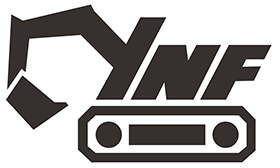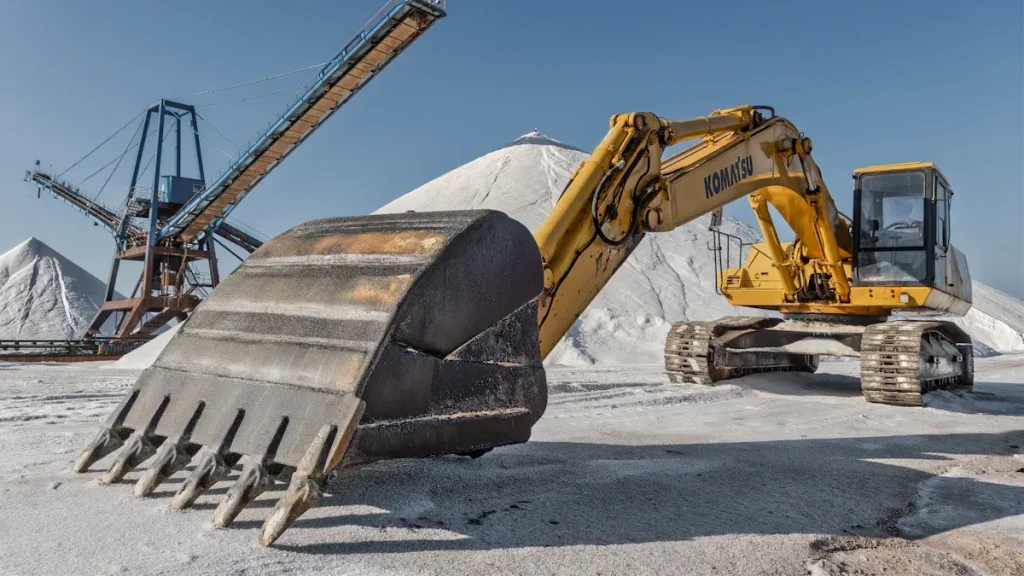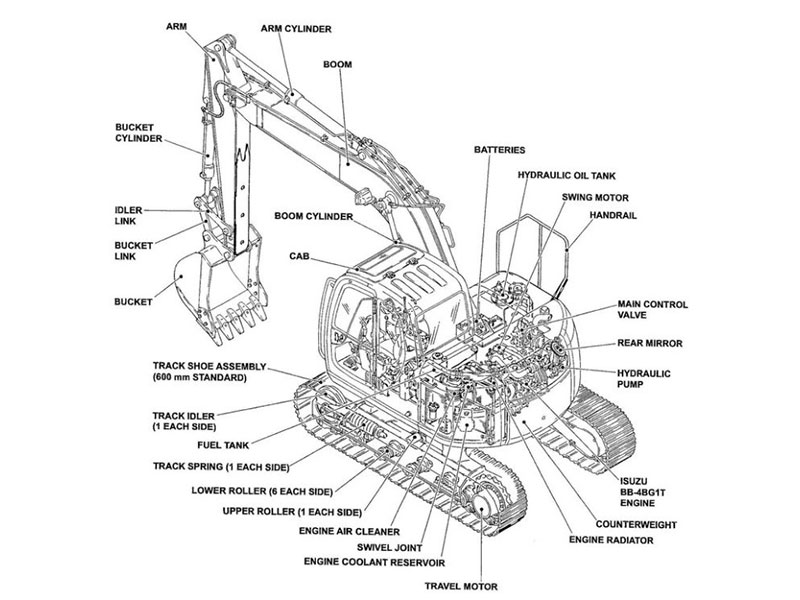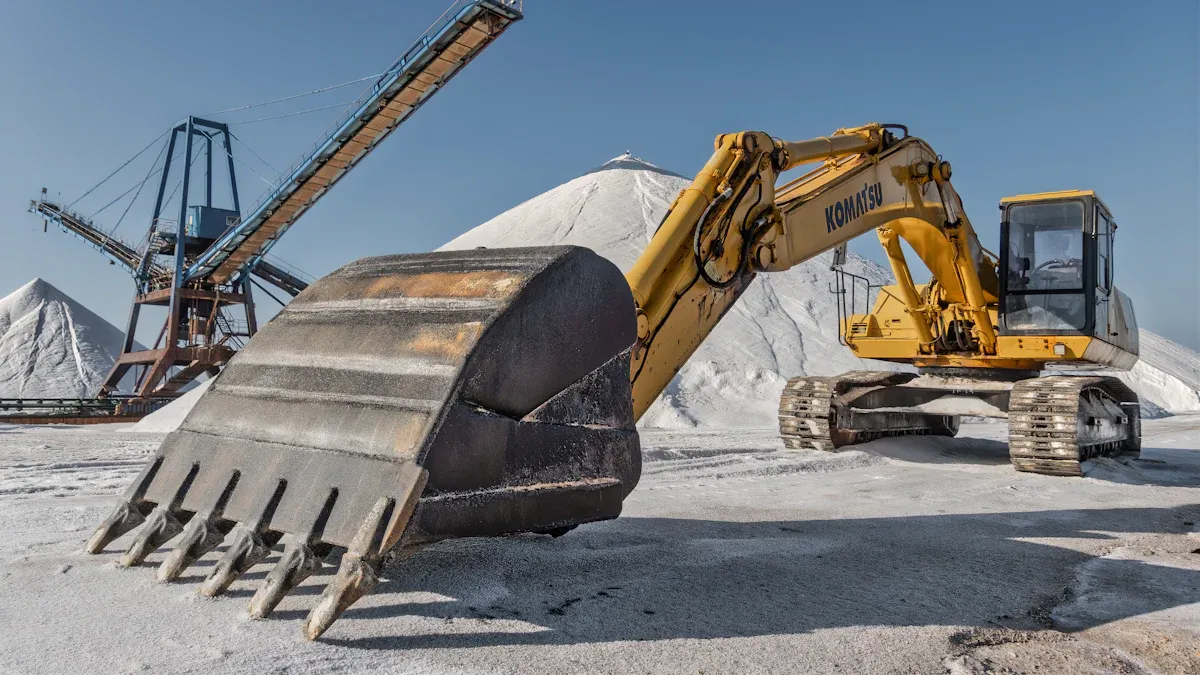
Choosing bad excavator spare parts suppliers can cause serious issues. Your machine might stop working due to poor-quality parts or late deliveries. This can be really frustrating, right? Plus, delays can increase costs and disrupt your plans. So, selecting a good supplier isn’t just smart—it’s essential.
A reliable supplier provides you with strong, compatible parts to keep your excavator running smoothly. Trustworthy excavator spare parts suppliers also offer better guarantees, faster shipping, and helpful customer service. By choosing someone dependable, you’ll avoid stress, save money, and save time.
Key Takeaways
Pick suppliers known for being trustworthy. Good reviews and experience show they are reliable.
Buy certified parts. Certifications like ISO and OEM mean they are safe and fit well, lowering the chance of problems.
Focus on quality, not just price. Spending more on good parts saves money later by needing fewer repairs or replacements.
Look at warranty and return rules. Strong warranties keep your money safe, and easy returns make you feel secure.
Check customer service. Helpful suppliers solve problems fast and deliver parts on time.
Why Reliable Excavator Spare Parts Suppliers Matter
Impact on Excavator Performance
Your excavator works best with good-quality parts. Strong excavator parts make it last longer and work better. For instance, tough tools like buckets or breakers help avoid breakdowns. Reliable excavator spare parts suppliers give parts that fit well. This lowers damage and keeps your machine in good shape. You’ll fix less and focus more on your projects.
Good tools can improve work speed by 10%-20%.
Better hydraulic systems use less energy, saving you money.
Changing old parts often prevents failures and keeps machines running.
Reducing Downtime and Operational Costs
Idle machines waste time and money on job sites. Picking trusted suppliers helps avoid delays from bad parts. They deliver the right excavator spare parts quickly, so work doesn’t stop. High-quality parts also last longer, cutting down on replacements and costs.
Tip: Research suppliers before buying. A good reputation means better parts and service.
Ensuring Long-Term Value with High-Quality Excavator Parts
Buying strong excavator parts saves money over time. These parts last longer and keep your machine working well. Whether it’s a breaker or other tools, good parts add value to your equipment. Trusted suppliers often include warranties, which protect your purchase. Working with reliable excavator spare parts suppliers means fewer repairs, better performance, and lower costs.
Key Criteria for Choosing Reliable Parts Suppliers
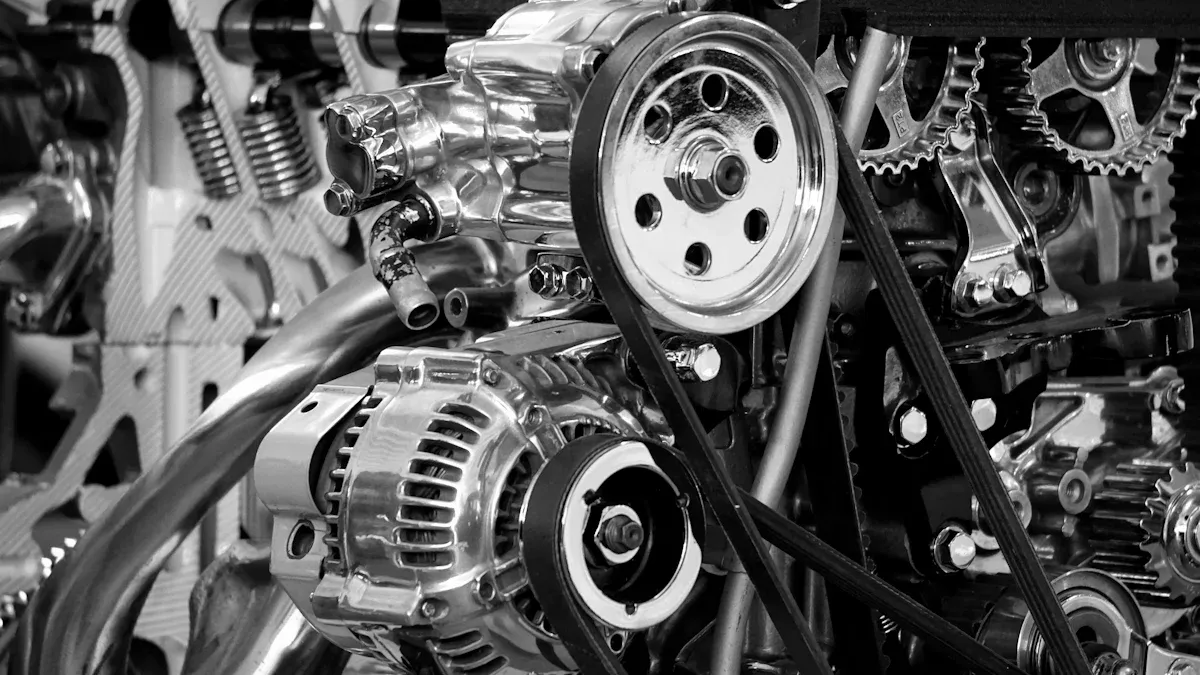
Reputation and Industry Experience
A supplier’s reputation shows how reliable they are. A good reputation means they’ve provided quality parts and service before. Choose suppliers with experience in the construction field. They know the challenges and can help you pick the right parts.
How can you check their reputation? Read customer reviews and testimonials. Positive reviews show they’re trustworthy. You can also ask for references or see if they’ve worked with big companies. Experienced suppliers are more likely to offer high-quality excavator parts that meet your needs.
Pro Tip: Ask suppliers about their history. Their answers show their knowledge and focus on quality.
Certifications and Compliance Standards
Certifications prove a supplier meets safety and quality rules. When buying excavator spare parts, look for certified ones. These certifications ensure the parts are safe, strong, and fit your machine.
Here’s a simple guide to key certifications:
Certification | Why It Matters | What It Ensures |
|---|---|---|
ISO Certification | Follows global quality standards | Consistent quality and high manufacturing standards |
CE Certification | Meets European safety rules | Safe for use in Europe |
OEM Certification | Made by the original brand | Perfect fit and top quality |
Certified parts pass strict checks. For example, OEM-certified parts are made by the original brand, so they fit and work well. Always ask about certifications before buying.
Note: Certified suppliers usually sell parts that last longer and lower the chance of breakdowns.
Quality and Compatibility of Excavator Parts
Good parts keep your machine working well. High-quality parts improve performance and make your equipment last longer. Whether it’s a bucket or breaker, you need parts that handle tough jobs.
Suppliers test parts to ensure quality. They do this by:
Setting durability goals: They decide how long parts should last.
Stress testing: Parts are tested under tough conditions.
Lifecycle testing: Simulated use shows how parts wear over time.
Environmental testing: Parts are checked for resistance to heat, moisture, and dust.
Always check if parts match your excavator brand. Using the wrong parts can cause damage and cost more to fix. Reliable suppliers help you find parts that fit your machine perfectly.
Reminder: Don’t settle for low-quality parts. Strong, compatible parts save money over time.
Warranty Coverage and Return Policies
When buying parts for your excavator, warranties and return policies are important. They protect you if something goes wrong and help you feel secure. A good supplier will have clear and fair warranty rules. These warranties mean you won’t pay extra if a part breaks early. It shows the supplier trusts their product’s quality and strength.
Before you buy, ask about the warranty details. Does it cover factory problems? How long is it valid? Some suppliers even give longer warranties for key parts like buckets or breakers. This is helpful if your excavator works in tough conditions.
Return policies matter too. Mistakes happen—you might get the wrong part or one that doesn’t fit. A good supplier makes returns easy. Look for policies that allow returns or swaps within a fair time. This can save you money and trouble, especially with costly equipment parts.
Tip: Always check the small details in warranties and return policies. Knowing the rules early can stop problems later.
Customer Reviews and Testimonials
Customer reviews and testimonials show what others think about a supplier. They tell you about the quality of parts and service. When picking excavator spare parts suppliers, reviews help you decide wisely.
Here’s what buyers often mention in reviews:
Quality and Reliability: People like suppliers who provide strong, dependable parts.
Customer Service and Support: Friendly and helpful teams make choosing parts easier.
Timely Delivery and Availability: Fast shipping and stocked items keep projects on track.
Reviews also show how suppliers handle problems. Do they fix issues quickly? Are they honest about certifications and skills? Good feedback here means the supplier is trustworthy.
Reminder: Don’t trust just one review or source. Check different platforms to get a full picture of the supplier’s reputation.
Tips for Buying Heavy Equipment Parts
Researching Supplier Credentials
Before buying parts, check the supplier’s background carefully. A good supplier gives you strong excavator parts that last longer. Start by reading reviews from other buyers. Positive reviews mean the supplier keeps their promises.
Certifications are also important. Certified suppliers follow safety and quality rules. For example, ISO or CE certifications show their parts meet global standards. Check if they know your equipment’s brand. Experienced suppliers provide parts that fit your machine well.
Ask about their experience too. How long have they been in business? Suppliers with years of work know heavy equipment better. They can help you avoid mistakes and choose the right parts.
Tip: Pick suppliers with many replacement parts for your equipment. This helps you find what you need faster.
Comparing Prices and Warranty Offers
Price is important, but it’s not everything. Compare prices from different suppliers to get a fair deal. Don’t pick cheap parts that wear out quickly. Low-quality parts cost more over time.
Warranties matter as much as price. A good warranty saves you from repair costs. Suppliers offer different warranties, such as:
Standard Warranty: Covers basic problems but not regular servicing.
Extended Warranty: Adds extra coverage for parts like hydraulics.
Specialized Warranty: Focuses on key parts, like powertrain systems.
Check warranty details carefully. Does it cover factory defects? How long does it last? Some suppliers give longer warranties for important excavator parts. This is helpful for tough work conditions.
Reminder: Choose suppliers with good reviews and fair warranties. This gives you the best value for your money.
Evaluating Customer Support and Responsiveness
Good customer support makes buying parts easier. Imagine needing a part fast, but the supplier doesn’t reply. Annoying, right? Test their response before buying.
Contact the supplier with questions about their excavator parts. Do they reply quickly? Are their answers clear and helpful? A responsive supplier respects your time and avoids delays.
Support isn’t just about speed. It’s also about knowledge. The best suppliers know construction equipment well. They can suggest the right parts and guide you on using them.
Pro Tip: Pick suppliers with many contact options like phone, email, or chat. This makes getting help simple and quick.
Checking Availability and Delivery Times
Timing is very important when buying heavy equipment parts. You don’t want your project delayed because parts arrive late. Reliable suppliers know this and keep spare parts ready to ship. They make sure you get what you need quickly.
Ask suppliers about their stock levels. Do they have the parts now? If not, ask how long restocking will take. Some suppliers show real-time inventory updates to avoid surprises.
Delivery speed is also important. A supplier might have the part, but slow shipping can hurt your project. Choose suppliers with fast delivery services. Many offer express shipping for urgent orders.
Here’s a simple checklist for availability and delivery:
Stock Levels: Check if the parts are in stock now.
Shipping Options: See if they offer fast delivery for emergencies.
Delivery Timeframes: Ask for delivery dates and match them to your schedule.
Tracking Services: Make sure they provide tracking to follow your shipment.
Tip: Pick suppliers known for delivering on time. This helps avoid delays and keeps your project moving.
Inspecting Parts for Quality Before Purchase
Checking quality is key when buying heavy equipment parts. Bad parts can break quickly and waste your money. Reliable suppliers test their products to meet industry standards.
Before buying, inspect the parts yourself or ask about their testing process. Here are common ways suppliers check quality:
Inspection Method | What It Does |
|---|---|
Quality Assurance Services | Helps avoid bad parts and improves quality control. |
Excavator Inspections | Checks parts during production, loading, and unloading. |
Inspection Checklist | Reviews appearance, performance, specs, and related documents. |
Testing Methods | Tests parts like brakes, hydraulics, and controls in tough conditions. |
Supplier Audits | Examines suppliers’ factories and quality systems before payment. |
Focus on durability, compatibility, and how well the parts work. Look for damage or wear, especially with used parts. Test them if possible or ask for reports from the supplier.
Reminder: Always inspect parts before buying. This ensures you get strong, reliable parts for your equipment.
Common Mistakes to Avoid When Choosing Excavator Spare Parts Suppliers
Choosing Cheap Prices Over Good Quality
Buying the cheapest parts may seem like a good idea. But cheap parts often break easily or don’t last long. This means you’ll need to replace them more often. Frequent replacements cost more money and waste time. Your construction projects might also face delays because of bad parts. Spending more on reliable parts saves money over time. They last longer and work better.
Instead of just looking at price, think about value. Ask yourself: Will this part help my excavator work well? Trusted suppliers sell strong parts that fit your machine’s needs. Quality parts protect your equipment and keep your work running smoothly.
Tip: Don’t pick the cheapest option. Paying more now can save repair costs later.
Using Parts That Don’t Fit Your Machine
Wrong parts can harm your excavator. They might not work properly or even cause damage. Some buyers forget to check if parts match their machine. This mistake can lower efficiency and cancel warranties.
To avoid this, always check the part’s details. Make sure it matches your excavator’s brand and model. Good suppliers help you find the right parts. They also give clear product information to guide your choice.
Reminder: Compatibility isn’t just size. It’s about how well the part works with your machine.
Forgetting About After-Sales Help
After-sales support is very important for heavy equipment owners. Without it, you’re left to fix problems alone. This can lead to bigger issues over time. Studies show customers want suppliers who offer help after buying. They value advice, quick fixes, and skilled technicians. Without support, your equipment might not work as well.
Good suppliers don’t just sell parts—they help after the sale. They guide you on how to install parts and give maintenance tips. They also solve problems quickly. This keeps your excavator in good shape and avoids delays in your projects.
Pro Tip: Pick suppliers with great after-sales service. It helps your equipment last longer.
Not Checking Supplier Credentials
Skipping supplier checks can cause serious trouble. Imagine buying parts from someone unqualified. You might get weak parts that break or don’t fit. This wastes time and money. Worse, it could harm your excavator and lead to expensive repairs.
Always check a supplier’s background before buying. Start by asking for their certifications. Trusted suppliers usually have certifications like ISO or OEM. These show they follow strict safety and quality rules. If they can’t provide proof, it’s a warning sign. Look for another supplier.
Experience is also important. Suppliers with years in construction know their job well. They understand your needs and suggest the right parts. Choose suppliers with good reviews or who work with big brands. This shows they are reliable.
Don’t forget about after-sales help. A supplier’s credentials include how they treat customers later. Good suppliers give advice, fix problems, and replace faulty parts fast. This keeps your excavator running smoothly and avoids delays.
Here’s a simple checklist to check supplier credentials:
Ask for certifications like ISO or OEM.
Check their experience in construction.
Read reviews from other buyers.
Make sure they offer after-sales support.
Following these steps helps you avoid bad suppliers. You’ll get better parts, great service, and peace of mind.
Final Checklist for Buying High-Quality Excavator Parts
Check Supplier Reputation and Certifications
Before buying excavator parts, research the supplier’s background. A good supplier has happy customers and positive reviews. Read feedback from past buyers to learn about their service. This helps you know if they are trustworthy.
Pick suppliers with certifications like ISO 9001 or OEM. These show they follow strict safety and quality rules. Certified suppliers are more likely to sell reliable parts.
Tip: Always ask about certifications before buying. This avoids problems with unqualified sellers later.
Confirm Product Quality and Compatibility
Good excavator parts keep your machine working well. Choose suppliers who test their parts for strength and fit. Reliable suppliers care about quality and have a strong reputation.
Certifications like ISO 14001 and SAE prove the parts meet industry rules. Warranties also show the supplier trusts their product. A warranty means the part is likely to last longer.
Reminder: Make sure the parts match your excavator’s brand and model. Wrong parts can break your machine and cost more to fix.
Compare Prices, Warranties, and Return Policies
Price is important, but it’s not everything. Compare prices from different suppliers to find a fair deal. OEM parts may cost more but save money in the long run. They often come with better warranties and need fewer repairs.
Check warranty details carefully. Does it cover defects? How long does it last? OEM warranties are usually more reliable than aftermarket ones.
Return policies matter too. Sometimes you might get the wrong part. Pick suppliers with easy return or exchange options to avoid trouble.
Pro Tip: Balance price, warranty, and return policies for the best deal.
Check Customer Support and Delivery Options
Good customer support makes buying parts easier. Imagine needing help, but no one replies. Annoying, right? Reliable suppliers care about helping customers. They answer fast and give clear solutions.
Test their support before buying. Send an email or call them. Do they reply quickly? Are their answers useful? A supplier who respects your time makes things smoother.
Delivery is just as important. Delays can mess up your project. Ask about their shipping options. Do they have express delivery for urgent needs? Can you track your order? Suppliers with quick and flexible shipping keep your work on track.
Tip: Pick suppliers with fast replies and speedy shipping. This helps you get parts and support without delays.
Look at Reviews and Ask for References
Reviews show how reliable a supplier is. They tell you about others’ experiences. Look for reviews about part quality, delivery speed, and service. Good reviews mean the supplier is trustworthy.
Don’t rely only on online reviews. Ask the supplier for references. Contact past customers and ask about their experience. Were the parts good? Was the service helpful? References give you extra details that reviews might miss.
Reminder: Check reviews on different sites. This avoids biased opinions and gives a better idea of the supplier’s reputation.
Picking good excavator parts suppliers helps your machine work well. Reliable suppliers give strong parts, helpful support, and fair warranties. These protect your money and equipment. Studies show trusted suppliers lower costs and improve performance. Follow the tips and checklist to choose wisely. The right supplier saves money, avoids delays, and keeps your projects moving forward.
FAQ
How can I tell if a supplier is reliable?
Look at their certifications, reviews, and experience. Check for ISO or OEM certifications. Read customer reviews on different websites. Ask for references from previous buyers. Reliable suppliers usually have good reputations and years of experience.
What’s the difference between OEM and aftermarket parts?
OEM parts are made by the original brand and fit perfectly. Aftermarket parts are made by other companies and may cost less. OEM parts are often stronger and come with longer warranties. Aftermarket parts can vary in quality and reliability.
Can I return a part if it doesn’t fit my machine?
Many suppliers let you return or exchange parts within a set time. Always check their return policy before buying. Good suppliers make returns simple and give clear instructions.
Why are warranties important when buying spare parts?
Warranties save you money if a part breaks early. They show the supplier believes in their product’s quality. Longer warranties often mean the parts are more durable and reliable.
How quickly can spare parts be delivered?
Delivery speed depends on stock and shipping options. Some suppliers offer express delivery for urgent orders. Always ask about stock and delivery times to avoid delays.
